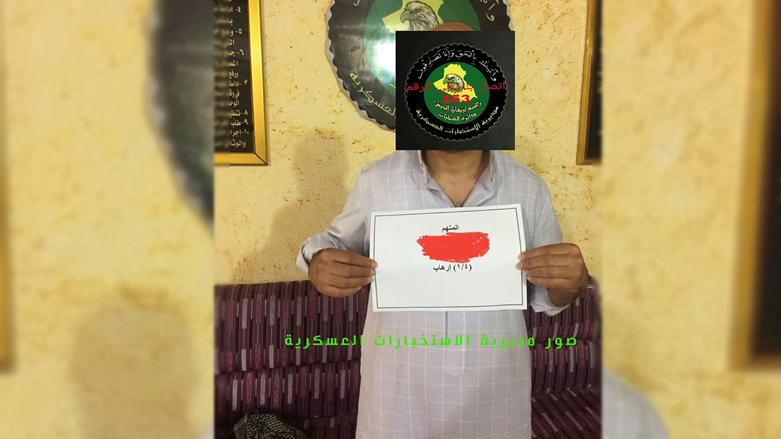Iraq arrests arms dealer it claims wrote infamous al-Qaeda poem

ERBIL (Kurdistan 24) – Iraq’s Ministry of Defense announced on Wednesday that its forces had captured an arms-dealer in Anbar Province who was also the writer of the infamous poem, “We Are the Organization Named al-Qaeda.”
Troops, “in an operation based upon accurate Intelligence information, were able to capture a dangerous terrorist in the region of Ramadi in Anbar,” read a statement released on Wednesday.
The ministry did not release the name of the suspect but said that he had supervised the transfer of weapons to armed groups between different parts of Ramadi.
“The wanted terrorist will be prosecuted according to the provisions of [the] Article 4 Terrorism [Law].”
The poem was publicly recited and sung during some sit-ins by locals in Ramadi and other parts of the Sunni-majority province of Anbar in 2012-13, something that then Prime Minister Nouri al-Maliki spoke of prominently and used as a justification for increased security operations.
The protests began in late 2012 by Iraqis who alleged sectarian-motivated politics, mass arrests, and various human rights abuses by Maliki after years of sustained government actions, including a raid on the Sunni Finance Minister Rafi'a al-Issawi’s house and the arrest of 10 of his bodyguards.
During the protests, some participants shouted radical slogans, with one video posted on the internet in which “We Are the Organization Named al-Qaeda" was recited. The poem contains calls for beheadings, the cutting off of arms, and a verse which translates to “We want to implement Sharia.”
Maliki had recognized the legitimacy of some calls for increased employment by protesters who had earlier disrupted a key trade route to Jordan and Syria by occupying a highway in Anbar, but was quick to use the video to characterize the protests as having been taken over by those hostile to Iraq's “national interest."
Many of Maliki's policies, widely seen as openly sectarian, were a primary factor behind local tribal leaders in Anbar deciding to fight alongside the rapidly-growing numbers of Islamic State fighters in Anbar and other parts of Iraq.
Editing by John J. Catherine
